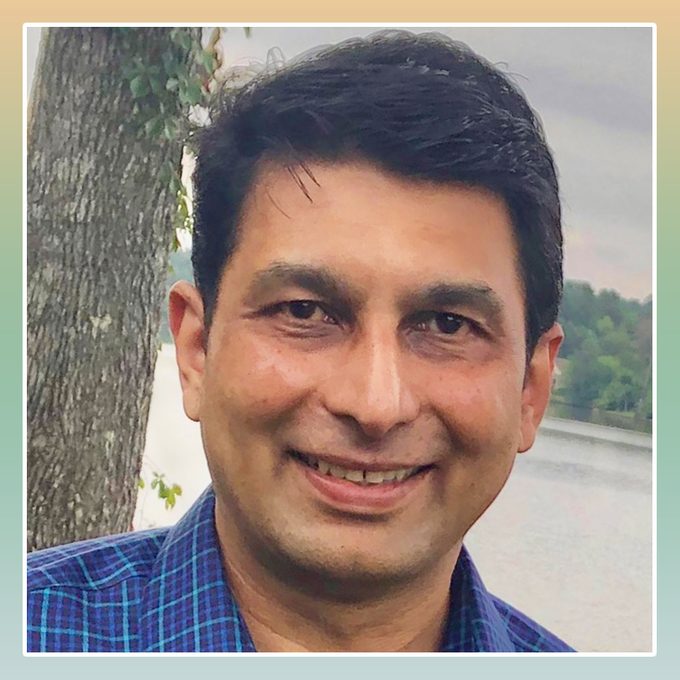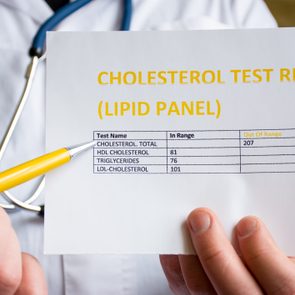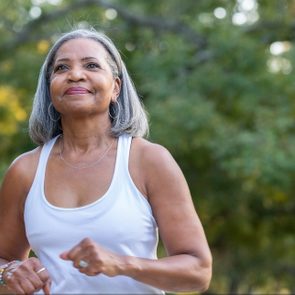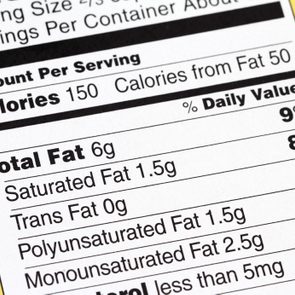A Cancer Diagnosis Changed How I Deal With My High Cholesterol
Updated: Sep. 07, 2021
Both medication and lifestyle changes can be vital tools for managing high cholesterol, and you don't have to be perfect to see health benefits. It's a lesson Dennis Legori learned after swinging from indifference to perfectionism and finally finding a healthy balance.

The tools for treating high cholesterol
High cholesterol may arrive without symptoms, but that doesn’t make it any less dangerous to your health. It’s a serious condition that increases your risk for heart disease. There are many ways to manage high cholesterol, including prescription medications and lifestyle changes, like losing weight, quitting smoking, eating a heart-healthy diet, and exercising more. But managing your cholesterol doesn’t have to be an either-or decision between medication or lifestyle changes. Nor does it have to be an all-or-nothing approach. Dennis Legori, 49, a cybersecurity expert in Florida, shares how he went to both extremes to manage his high cholesterol—and how he found a healthy balance.
High cholesterol wasn’t my priority
I was just 29 years old when I was first diagnosed with high cholesterol. And when I say “high,” I mean my total cholesterol was in the upper 300s, putting me in the extreme risk category. To put it in perspective, a healthy cholesterol level is less than 200 mg/dl.
Worrying? For sure. But I was a little too busy to get hung up on the number.
My wife and I had just moved to the United States from India, and I was starting grad school. I had very little time or money to do much about my cholesterol level. I tried adding some exercise and maybe eating a little healthier, but I didn’t try that hard.
Honestly, I mostly just forgot about it. It can be very difficult to find a healthy life balance in graduate school!
A few years later, I graduated and got a professional job in manufacturing. That came with a lot of stress and long days, but it did have one big perk: health insurance.
I was finally able to see a doctor about my high cholesterol again. He found that my numbers were down a little bit. Yet my total cholesterol level of about 270 mg/dl was still too high. So he prescribed a common statin medication.
I asked him about trying to change my lifestyle to manage my cholesterol, but he brushed it off. Exercise would have little effect compared with the medication, he told me. His advice: just stick with the statin.
The meds worked, so I accepted his answer. I figured that, like the few extra pounds I was carrying, this was just part of aging.
Then I was diagnosed with cancer
My life was completely upended in June 2013, when I was diagnosed with stage 3 Hodgkin’s lymphoma. I had to have surgery and then go through six months of chemotherapy.
The type of chemo I needed used a drug nicknamed “the red devil.” You can probably imagine how awful the side effects are. One of those is liver damage.
With that nasty side effect in mind, one of the first things my doctor did was take me off the statin. The cancer was a much bigger threat to my health, and they didn’t want any unnecessary medical strain on my body.
For my part, I decided to do whatever I could to fight the cancer, and that included overhauling my lifestyle. I switched to a less-stressful job, I started eating healthier, and then I added exercise once I’d recovered enough from the chemo.
A year later, I was cancer free. I’d lost 50 pounds. And as an added bonus, my cholesterol was fine—without the statins.
Without intending to, I’d proven to myself that it was possible to manage my high cholesterol simply through lifestyle changes.
My lifestyle swung to a different extreme
A cancer scare will make anyone rethink their life choices. I’ll admit, I became a little obsessive with my health.
I had no control over the cancer, so I decided to get in the best shape possible to try to avoid a relapse. For several years, I tracked everything I ate in a calorie-counting app and exercised nearly every day.
I would do two to three long runs each week on top of regular gym workouts. I even trained for, and ran, a marathon.
Then the pandemic hit
Covid-19 hit and upended my life again. During the pandemic, my gym closed, and I switched to working from home. Without gym equipment, my workouts became fewer and shorter.
With my daily schedule thrown off, I started skipping my morning green smoothie. Instead, I was relying more on takeout or fast foods, which are loaded with cholesterol-raising saturated fats.
As the pandemic dragged on, my weight and cholesterol started to creep back up. I told myself that I’d get back to my strict diet and workout schedule when things settled down.
But that was further from a reality than I realized. Early this year, my wife and I decided to move to Florida, which meant upending our lives all over again. I recognized that with all the changes that come with trying to sell a house, build a new one, and move halfway across the country, things were not going to settle down any time soon.
Then it hit me: That’s okay! That’s how life is. And this probably wouldn’t be the last time I would experience my life getting upended. If I was going to wait for everything to be ideal before making healthy changes, I’d be waiting forever.
I found a happy medium
I needed balance. My previous lifestyle wasn’t sustainable, so I decided to adjust my priorities and expectations. The new focus became the small, healthy changes I could make immediately.
I stocked the fridge with healthy-but-simple options like yogurt, and we tried to eat out less. Daily walks or swims became the new norm. I began to listen to my body, eliminating stress and prioritizing a good night’s sleep.
Things that were causing more stress than benefits—weighing myself daily, counting calories, and doing long workouts—also had to go. This meant that I gained a few pounds, and my cholesterol was a little higher than I or my doctor liked. That’s when I went back on the statin, this time at the lowest dose.
Twenty years ago, I would have accepted that and used it as an excuse to avoid making necessary changes. Five years ago, I would have seen this as a serious backslide. Now I see it as part of maintaining a healthy balance between protecting my health and living my life.
Taking cholesterol medication isn’t a cure-all or a failure. It’s just one tool of many at my disposal.
As of today, I am cancer free, surrounded by people I love, living in a beautiful new place, working a job I love, and enjoying my free time. And if that means I need to take a low-dose medication to help manage my cholesterol, then I’ll add “good medical care” to my long list of blessings and be grateful for it.
I’m not perfect, but I’m happy. And that’s even better.
—As told to Charlotte Hilton Andersen



















